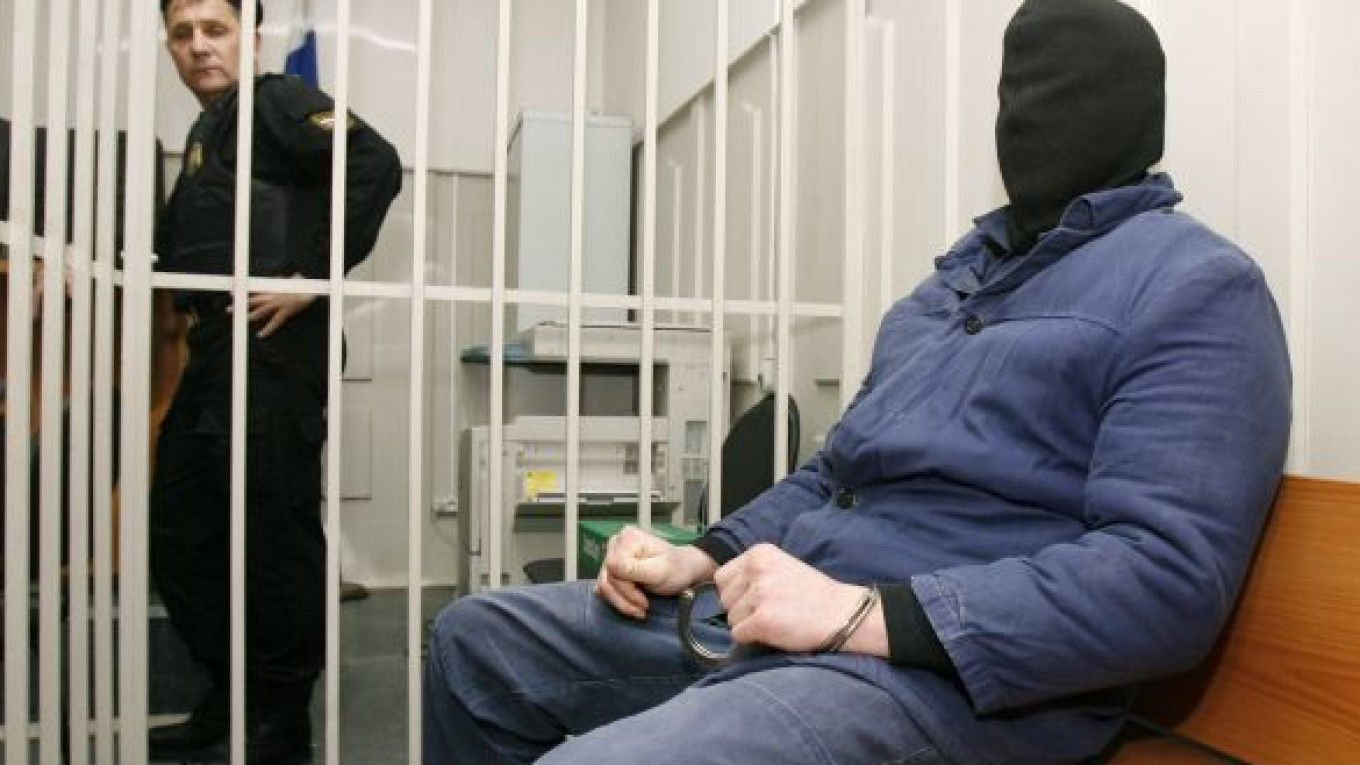The suspected gunman, Nikita Tikhonov, has the same name as a man accused by Markelov in a hate murder three years earlier.
Sova Center, which tracks hate crimes, named a Nikita Tikhonov as one of the suspects in the April 2006 stabbing death of anti-fascist activist Alexander Ryukhin in southern Moscow. Sova, which posted the information on its web site in late 2006, said Tikhonov was a member of the ultranationalist group United Brigade-88, and it cited Markelov, who at the time was the lawyer for Ryukhin’s mother, as the source of the information.
Sova director Galina Kozhevnikova told The Moscow Times on Thursday that she believes that the Tikhonov linked to Ryukhin’s killing and the Tikhonov arrested in Markelov’s killings were the same person.
“That Tikhonov had a serious motive to kill Markelov because he imprisoned his friends,” Kozhevnikova said.
Moscow’s Nagatinsky District Court sentenced three people to prison terms in June 2007 for the attack on Ryukhin, while three other suspects remained at large.
Federal Security Service chief Alexander Bortnikov told President Dmitry Medvedev on Thursday that Tikhonov had admitted to shooting Markelov and Novaya Gazeta reporter Anastasia Baburova on an icy sidewalk in central Moscow on Jan. 19.
Moscow’s Basmanny District Court authorized the arrest of Tikhonov, 29, and Yevgenia Khasis, 24, on Thursday, Moscow City Court spokeswoman Anna Usachyova said, Interfax reported. She identified Tikhonov as unemployed and Khasis as a manager.
The Investigative Committee has charged Tikhonov and Khasis with the murder, which carries a maximum punishment of up to life in prison.
Khasis is suspected of following Markelov after he left a news conference and informing Tikhonov of his whereabouts, law enforcement officials told Kommersant.
FSB director Bortnikov said the suspects, who were detained Tuesday, were members of a criminal group that carried out a racially motivated murder in September and was planning a high-profile murder, according to remarks posted on the Kremlin’s web site.
He provided no details about the September killing or the murder plot.
Law enforcement officers have confiscated a large number of firearms from the criminal group, Bortnikov said, without mentioning any other members of the group.
Alexander Belov, former leader of the ultranationalist Movement Against Illegal Immigration, or DPNI, said he knew Tikhonov personally and had “serious doubts” that he was linked to any murders, Interfax reported.
Belov said Tikhonov had served as a public relations consultant in the campaign office of Boris Fyodorov, the founder of the UFG investment bank and a former finance minister, ahead of the State Duma elections in 2003. Fyodorov died in November 2008 after suffering a stroke.
Tikhonov also once worked as a speechwriter for the Interior Ministry, Belov told Komsomolskaya Pravda.
Belov said he would help Tikhonov find a lawyer.
Interfax and Kommersant reported that the suspects were former members of the banned ultranationalist group Russian National Unity.
But Komsomolskaya Pravda reported that Tikhonov was a member of United Brigade-88, possibly confirming Sova’s information.
Russian National Unity’s former leader, Alexander Barkashov, said Thursday that he could not say whether Tikhonov and Khasis had ever been members of his group, Interfax reported.
Markelov’s brother, former State Duma Deputy Mikhail Markelov, told Kommersant that his own investigation into the attack had concluded that the two suspects were indeed involved in the January murders.
Stanislav Markelov, who handled high-profile rights cases such as for the family of a Chechen girl who was strangled to death by former army Colonel Yury Budanov, was shot dead by a masked assailant after holding a news conference criticizing Budanov’s early release. Baburova, who was walking with him, was injured in the attack and died hours later in the hospital.
The head of the Moscow branch of the Investigative Committee, Anatoly Bagmet, said shortly after the attack that it might have been organized by ultranationalists.
Ultranationalists had been dismayed by Budanov’s 10-year prison sentence and called for his release, saying he was the victim of a smear campaign.
A Message from The Moscow Times:
Dear readers,
We are facing unprecedented challenges. Russia's Prosecutor General's Office has designated The Moscow Times as an "undesirable" organization, criminalizing our work and putting our staff at risk of prosecution. This follows our earlier unjust labeling as a "foreign agent."
These actions are direct attempts to silence independent journalism in Russia. The authorities claim our work "discredits the decisions of the Russian leadership." We see things differently: we strive to provide accurate, unbiased reporting on Russia.
We, the journalists of The Moscow Times, refuse to be silenced. But to continue our work, we need your help.
Your support, no matter how small, makes a world of difference. If you can, please support us monthly starting from just $2. It's quick to set up, and every contribution makes a significant impact.
By supporting The Moscow Times, you're defending open, independent journalism in the face of repression. Thank you for standing with us.
Remind me later.


